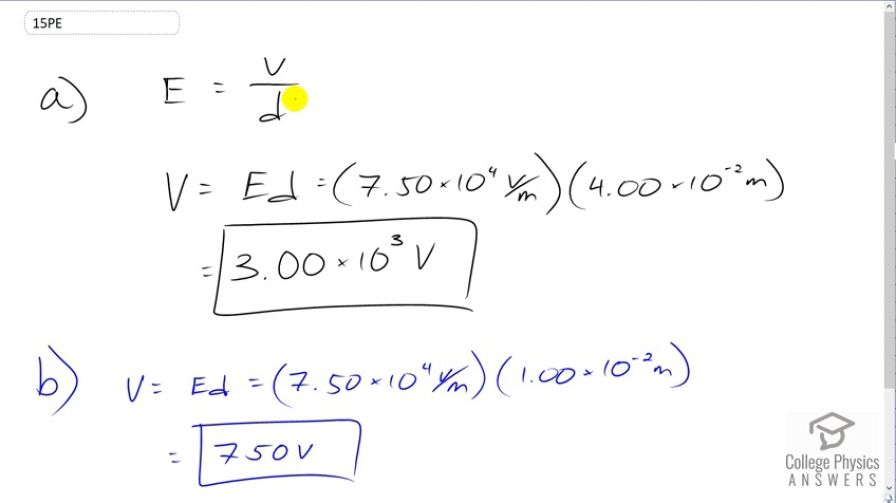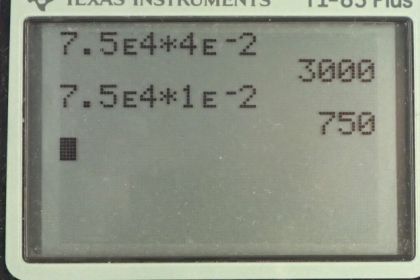Question
The electric field strength between two parallel conducting plates separated by 4.00 cm is . (a) What is the potential difference between the plates? (b) The plate with the lowest potential is taken to be at zero volts. What is the potential 1.00 cm from that plate (and 3.00 cm from the other)?
Final Answer
Solution video
OpenStax College Physics for AP® Courses, Chapter 19, Problem 15 (Problems & Exercises)

vote with a rating of
votes with an average rating of
.
Calculator Screenshots
Video Transcript
This is College Physics Answers with Shaun Dychko. Electric field is the potential difference between two large parallel plates divided by the separation between them and we can solve for potential difference by multiplying both sides by separation d and we ends up with V equals E times d so that’s 7.5 times ten to the four volts per meter or newtons per coulomb if you prefer multiplied by four times ten to the minus two meters, separation that’s four centimetres that’s works out to three times ten to the three volts and if you were one centimetre from one of the plates then the potential difference between that position and the plate with zero potential will be the electric field times that separation from the plate pf zero potential and that’s 7.50 times ten to the four volts per meter times one centimetre which is one times ten to the minus two meters giving us 750 volts potential difference from that position to the plate with zero potential.
